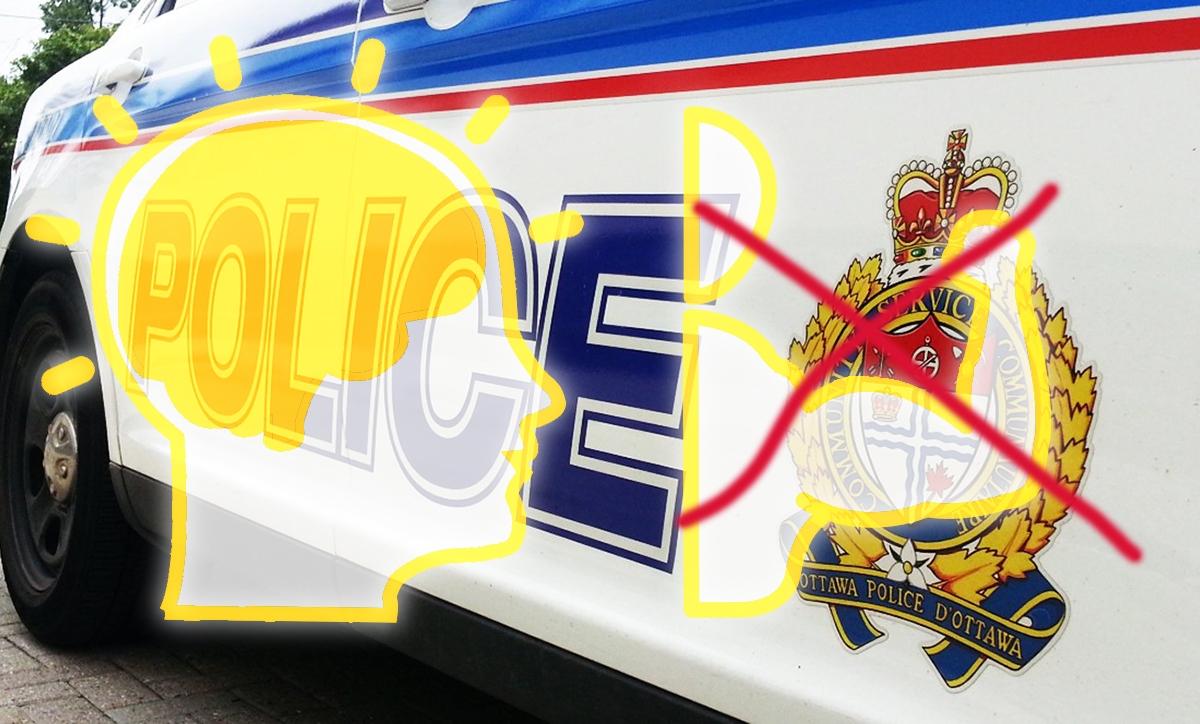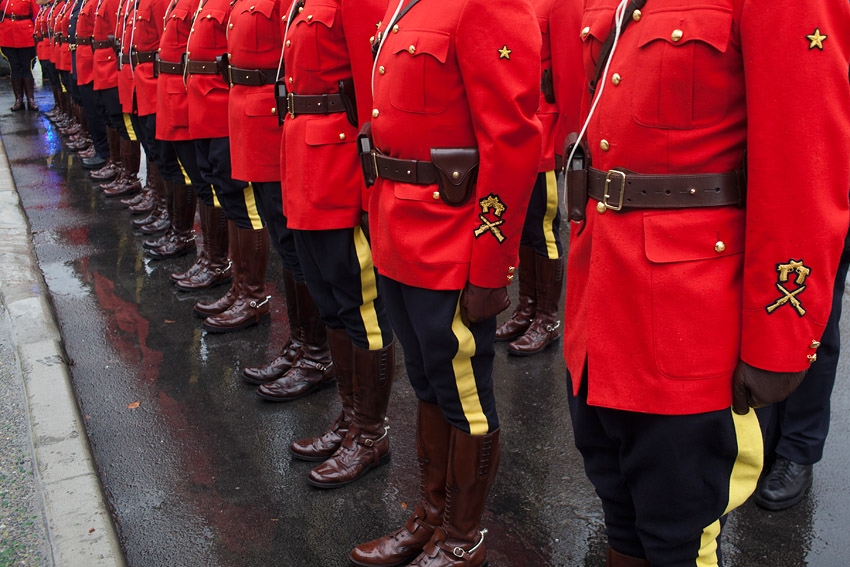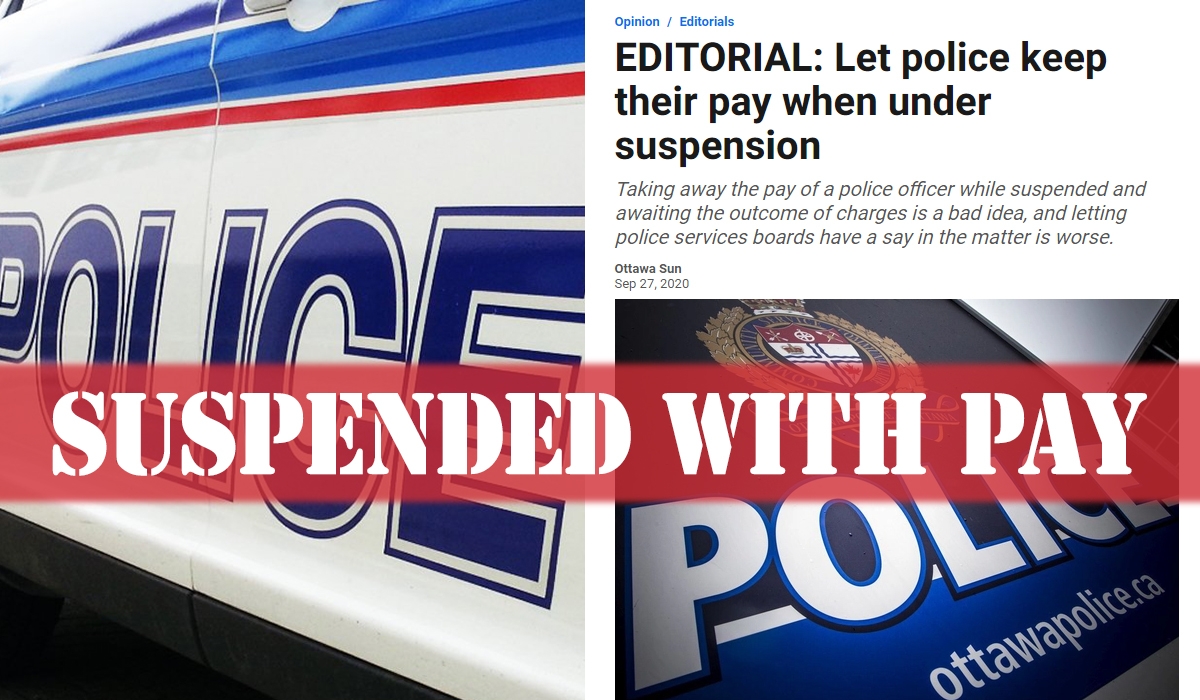
Yasir Naqvi Still Refusing to Answer Questions About His Role in Release of Montsion Without a Bail Hearing
Attorney General and Ottawa Centre MPP Yasir Naqvi is still refusing to answer questions regarding his role in the release of Ottawa Police Constable Daniel Montsion on manslaughter charges. Montsion was released March 6 without having to appear in court first before a bail judge. Naqvi's office contacted both Carleton Professor Darryl Davies and Ottawa Life Magazine Publisher and Managing Editor Dan Donovan yesterday to deny there was a cover up in the case, an accusation Donovan made on CFRA last week in an interview with Morning Drive host Bill Carroll.
Clare Graham, Press Secretary & Communications Advisor to Yasir Naqvi contacted Donovan yesterday to deny that there was a cover up adding, "If you have further questions please do not hesitate to contact me or my office".
Donovan then sent the following 3 questions to Minister Naqvi.
1) When was Mr. Naqvi first told that Constable Montsion was being charged?
2) When charges are laid, it is then the responsibility of the Crown to proceed from that point. Why did the Crown and AG allow the police make to make the decision regarding the release without bail after charges were laid?
3) At that point (when charges are laid), the matter becomes one for the Crown and the Attorney General. So, since it is their responsibility after charges are laid, why was he released without appearing before a judge?
Mr. Naqvi will not answer the questions, his staff reverting to: "As the Attorney General, it would be inappropriate for me to comment on this specific case any further, as the SIU has laid criminal charges and the matter is now before the courts".
"The entire point is that Mr. Naqvi is misleading everyone and being deceitful," says Donovan.
"The fact is that under our system of law, once charges are laid, the responsibilities for what happens next are turned over to the Crown and the Attorney General. Mr. Naqvi is either grossly incompetent or he is misleading everyone to cover his own role in the release of Montsion who is charged with manslaughter in the brutal and violent beating that led to a death. It is inexcusable."
A second problem is that in colluding with the police to release Montsion, Mr Naqvi ensured the media would be unable to report on the matter because Montsion would not be appearing at court. This is special treatment afforded to no other person charged with such a serious crime.
Naqvi's office has still refused to answer the 3 questions to clear up the matter. Ottawa Life Magazine stands by the accusation that the Attorney General is covering up his role in the release of Montsion. The questions he needs to answer in the public interest are very simple, says Donovan, and he owes it to everyone involved to answer them.
Carleton Criminology Professor Darryl Davies responded with a detailed response to Naqvi's letter yesterday saying "you are in some confusion as to what your roles, responsibilities and obligations are as the Attorney General of Ontario". (See Davies full response below)
Dear Mr Naqvi
Thank you for your letter. The overall tone and response only reinforces my view that you are in some confusion as to what your roles, responsibilities and obligations are as the Attorney General of Ontario. Rather than citing my own, or other expert opinion on this matter, please follow the narrative below where I respond to your letter by citing back to your job responsibilities and obligations as defined by the very statue and laws of Ontario that define the role of the Attorney General of Ontario.
When you say:
Our community is still grieving the tragic death of Mr. Abdi. My thoughts and deepest condolences remain with Mr. Abdi’s family and friends. His death was a sorrow that no family should ever have to experience. As their MPP, I have met with Mr. Abdi’s family to provide them with support during this difficult time. I will continue to make myself available to them and our community.
What does make yourself available to them and our community mean? You have not done this, other than saying: "His death was a sorrow that no family should ever have to experience". You have been continually evasive and not answered serious questions in the public interest from several media outlets and others. You have not addressed any issues related to your role in the decision making process regarding Constable Montsion's release without appearing before a Justice of the Peace, Judge or Magistrate for a bail hearing. Your letter does not provide accurate information and parses words to avoid answering questions in the public interest.
You state:
In cases like these, the investigation and laying of criminal charges against police officers in Ontario is done by the Special Investigations Unit (SIU). The SIU conducts its investigations and decides whether or not to lay charges completely independent of the government, the Attorney General, the local police, and the community. Under the law, only the SIU Director has the authority to cause charges to be laid against an officer. This independence is important as it allows the SIU to conduct criminal investigations and make decisions without interference from the government or the local police.
In this particular case, the SIU laid criminal charges against Constable Daniel Montsion. When charges are laid, SIU investigators make initial release decisions, like deciding whether to release the accused directly from custody, or bring them to court for a bail hearing.
This is not true under Criminal prosecutions (s.5(d)) where it states that:
The Attorney General does not, however, direct or cause charges to be laid. While the Attorney General and the Attorney General's agents may provide legal advice to the police, the ultimate decision whether or not to lay charges is for the police. Once the charge is laid the decision as to whether the prosecution should proceed, and in what manner, is for the Attorney General and the Crown Attorney.
You were briefed on this matter and once the charge was laid and you knew Constable Montsion was going to be released without a bail hearing, you either agreed to it, or chose to do nothing and let it happen.
Criminal prosecutions (s.5(d)) states that:
It is now an accepted and important constitutional principle that the Attorney General must carry out the Minister's criminal prosecution responsibilities independent of Cabinet and of any partisan political pressures. The Attorney General's responsibility for individual criminal prosecutions must be undertaken – and seen to be undertaken – on strictly objective and legal criteria, free of any political considerations.
Since this is the law, why was Constable Montsion given special treatment by Crown Prosecutors and you, as the Attorney General of Ontario, after charges were laid? Can you please cite other cases where civilians in Ontario (who are not law enforcement officers or police) and have been charged with murder or manslaughter, have been released into the community without appearing before a justice of the peace or judge first?
Criminal prosecutions (s.5(d)) states that:
Whether to initiate or stay a criminal proceeding is not an issue of government policy. This responsibility has been characterized as a matter of the Attorney General acting as the Queen's Attorney – not as a Minister of the government of the day.
This is not to suggest that decisions regarding criminal prosecutions are made in a complete vacuum. A wide range of policy considerations may be weighed in executing this responsibility, and the Attorney General may choose to consult the Cabinet on some of these considerations. However any decisions relating to the conduct of individual prosecutions must be the Attorney General's alone and independent of the traditional Cabinet decision making process. In practice, in the vast majority of cases, these decisions are made by the Attorney General's agents, the Crown Attorneys.
You were briefed on this case, on the SIU investigation, and on the charges and the process after those charges were laid. The Crown Attorney in Ottawa, through you, would have had to agree to this release before it happened, yet you deny this is your responsibility.
This brings into question your judgment, competency and basic understanding of your role as the Attorney General of Ontario and your responsibilities for enforcing the laws of the province. Still, you accept no responsibility for any of these matters. My claim that you are not representing the public interest is based on the fact that you provided and agreed to Constable Montsion being treated differently than others who are charged with manslaughter or similar serious offenses, and are therefore in breach of your duties as Attorney General.
An important part of the Crown's – and thus the Attorney General's – responsibility in conducting criminal prosecutions is associated with the responsibility to represent the public interest – which includes not only the community as a whole and the victim, but also the accused.
You state in your letter that:
In this instance, the accused surrendered at the OPP detachment in Kanata in response to an arrest warrant. He was released by the SIU from the OPP detachment with conditions.
Once he was charged and a warrant issued, the matter becomes the responsibility of the Crown Attorney's and Attorney General regarding next steps.
It is quite incredible that as the Attorney General of Ontario, you are saying that even though you knew Montsion was criminally charged with manslaughter you agreed that:
1) it was up to the SIU/OPP to decide whether or not Constable Montsion should appear before a bail judge …or not ….and
2) that the SIU/OPP would make the decision as to whether or not Constable Montsion, who was charged with manslaughter, would released bail into the community without appearing
3) that you, as Attorney General of Ontario did not act in the public interest and insist he appear before a judge to ensure that justice was being done and being seen to be done
Although the Attorney general can become involved in decision-making in relation to individual criminal cases, such a practice would leave the Minister vulnerable to accusations of political interference. Accordingly, it is traditional to leave the day-to-day decision-making in the hands of the Attorney General's agents, the Crown Attorneys, except in cases of exceptional importance where the public would expect the Attorney General to be briefed
Contrary to your letter and claims, the preponderance of evidence shows that once Constable Montsion was charged, you did not do your duty and protect the public interest and uphold the laws of Ontario, but instead agreed with a biased process to provide Constable Montsion with special treatment. In fact, the Crown Attorney and you as Attorney General have acted improperly by agreeing to allow Montsion release without a bail hearing. The question is why? Why, after the charges were laid, did you allow Constable Montsion to be released without a bail hearing?
You are derelict in your duties in not recognizing the conflict of interest here in allowing the Ontario Provincial Police to release a fellow policeman charged with manslaughter (Ottawa Police Services Constable Daniel Montsion) without first appearing before a bail judge.
Your refusal to answer this question and others related to the tragic death of Abdirahman Ismael Abdi reminds me of the Simon and Garfunkel song, "The Sound of Silence." Unfortunately that sound is deafening and drowning out justice in this case.
Yours truly
Darryl T Davies
Instructor in criminology and criminal justice
Department of Sociology and Anthropology
Carleton University








